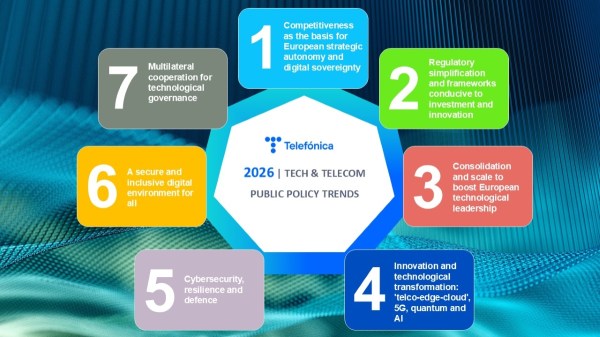Tell us a little about yourself, what does your job at Telefónica involve?
I currently work at Vivo – Telefónica Brazil, where I lead strategic initiatives aimed at transforming customer experience and optimising processes through the use of technology, with a special focus on artificial intelligence. My role is to explore, develop and implement AI products and solutions that serve the various areas of Vivo, always aiming to bring value to the business.
One of the most relevant projects I am involved in is the development and evolution of Aura, our artificial intelligence. Aura acts as an intelligent interface that connects customers to services and information in a fast and personalised way. It is integrated into various channels, such as the Vivo app, WhatsApp and other media, allowing customers to resolve issues and get support efficiently and tailored to their needs.
In addition, I recently developed I.Ajuda, an initiative that creates generative artificial intelligence agents to act as co-pilots in contact centres and physical shops. These agents offer proactive and personalised solutions, which not only improves the customer experience, but also optimises internal operations.
My approach is to use artificial intelligence in an ethical, responsible and efficient way, always seeking to create practical and impactful products and solutions that connect technology with real customer needs.
For those who are unclear, could you explain what artificial intelligence is?
Artificial intelligence (AI) is a branch of computer science that seeks to develop systems and machines capable of performing tasks that would normally require human intelligence. This includes activities such as learning from data, making decisions, recognising patterns, solving problems and understanding natural language.
Simply put, we can think of AI as the ability of machines to ‘think’ or ‘act’ intelligently. For example, when you use Vivo’s virtual assistant, Aura, to answer questions or solve problems, you are interacting with an AI system. This system understands your request, analyses the context and provides a relevant response, mimicking the way a human might help you.
AI is present in many areas of our daily lives, such as movie recommendations on streaming platforms, virtual assistants like Aura, autonomous cars, medical diagnostics and much more. Its goal is always to facilitate processes, increase efficiency and provide better experiences for people.
What are the challenges of AI?
Artificial intelligence faces several challenges, both technical and ethical. One of the main ones is the quality and quantity of data, which is often biased or insufficient, which can lead to inaccurate or unfair decisions. In addition, AI is not exempt from ethical issues related to bias, as it tends to reflect limitations or biases present in the data it was trained on. Another major challenge is privacy and security, given the massive use of personal data and the potential vulnerability of systems to attack or manipulation.
On a technical level, the lack of explainability in advanced models, such as deep neural networks, hinders their adoption in critical areas where it is necessary to understand how decisions are made. In addition, the costs associated with infrastructure and model training can be prohibitive for many companies or emerging countries. There is also a large gap between the demand for specialised professionals and the amount of available talent, which further hinders the development and implementation of AI projects.
However, while these challenges are significant, there are alternatives to address them. The technology community is working on tools and approaches to mitigate biases, improve the explainability of models and reduce the consumption of computational resources. In addition, collaboration between business, government and academia is promoting the training of talent and the development of clear regulations to ensure ethical and responsible use of AI. These initiatives underline that, while AI presents complex challenges, it also offers enormous potential when applied correctly.
What would be the limit of artificial intelligence?
The limit of artificial intelligence lies in its inability to understand complex contexts, show empathy or make decisions based on ethical values. AI relies on data and patterns to function, but lacks intuition and genuine creativity. Technical constraints, such as the need for computational power, and ethical and regulatory issues also represent significant barriers. Despite these limitations, AI is a powerful tool that complements human capabilities, but does not replace them.
Which colleague do you nominate for this interview that you consider to be a good professional in their job?
I would like to nominate: William Marcelo Marques Bueno and Julia Llanos Alonso.






